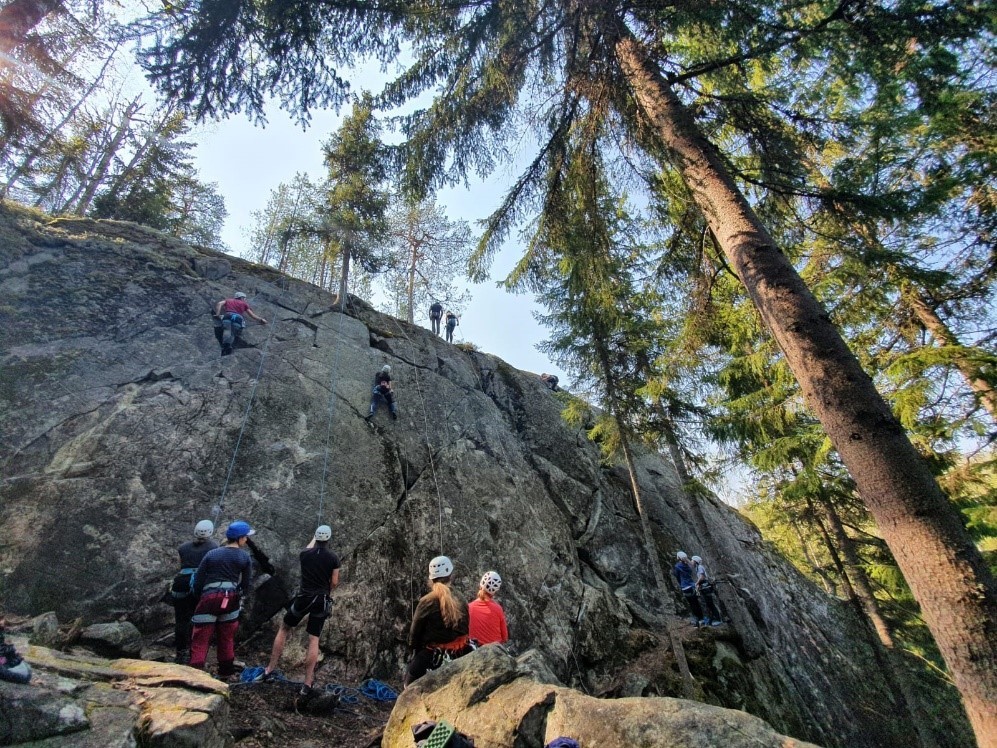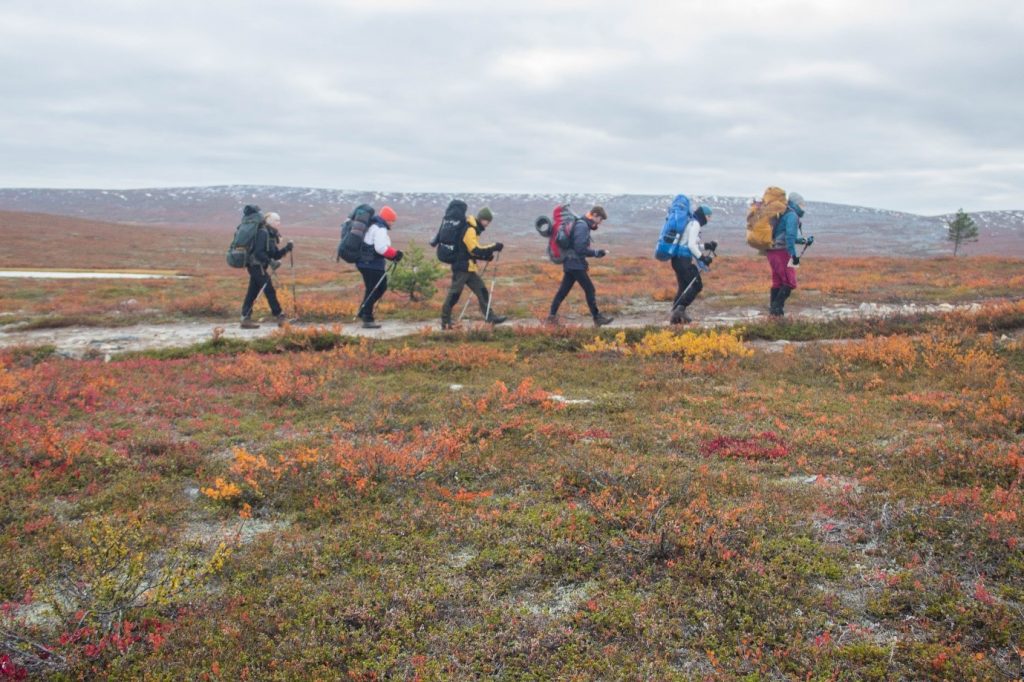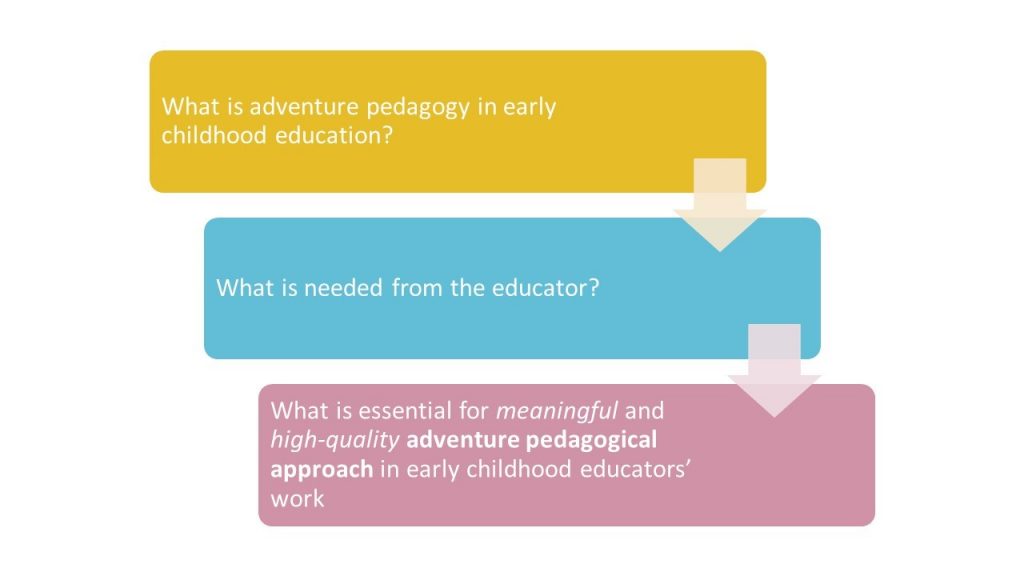Adventure Educational Competencies – Writing a Thesis as an Adventure Educator
The degree programme in Adventure and Outdoor Education provides students with a wide range of skills for employment as a professional in the diverse area of adventure and outdoor education. After graduation, students have multiple employment opportunities within the different sectors of national and international working environments. Community educators with adventure educational orientation can be employed e.g. in the field of youth work, organizational work, education and training, well-being services, or nature- and adventure-based entrepreneurship.
Since launching in 2018, Humak’s community educator bachelor’s degree programme focused on adventure and outdoor education has attracted an increasing number of applicants both internationally and in Finland providing a unique perspective in the fields of youth and NGO work, education and training and nature-and adventure-based entrepreneurship.
The degree programme has gathered positive feedback from students and piqued the interests of many. Now, in 2021, we are finally starting to see students graduating from the programme. The first adventure educator graduating in December 2020, and many more after.
Adventure education is based on an experiential learning model which supports the student through activity-based learning. A substantial part of the studies contains learning by doing, in authentic real-life environments. So how is the academic side of adventure education?

Adventure Educational Thesis
The last push for many students trying to acquire a higher education degree is writing a thesis. In universities of applied sciences, theses usually are commissioned and centered around a real life need arising from their fields of expertise.
Since adventure education is so activity-based, their thesis process is especially interesting. How do you use a skillset such as first aid, hiking and trekking, and climbing to produce academic work to serve a purpose?
The following two theses were showcased on an adventure and outdoor education thesis seminar this autumn semester. They are excellent examples of showing adventure educational competencies and grasping the idea of adventure education responding to societal needs.

A Student-Guide for Self-Directed Learning
How do you learn from an experience? That is at the heart of Johanna Ter Horst’s thesis titled ”Creating your personal learning journey. A student guide to foster reflection on independent trips.”
As an adventure educator student, she had noticed that although these activity-based trips had provided her with multiple learning experiences, they faded away since concrete documentation of said learning often was non-existent.
However, as an adventure and outdoor educator, it is unacceptable for you to not make sure that your students have meaningful learning experiences. ”We send them purposedly outdoors, we will make sure they have the experience we are aiming for” Ter Horst continues.
These thoughts inspired her to create a new kind of tool for approaching reflection with more structure. As part of her thesis project, she created a card to guide the process of learning from experiences. This tool has already been used by adventure education students at Humak and got excellent feedback on its usability for experiential learning.
Kai Lehtonen, a Humak lecturer, comments on Ter Horst’s thesis by saying that it is exactly what a university of applied sciences thesis should be like; responding to a real life need.

Adventure Education in Early Childhood Education
Siiri Pirjamo’s thesis on the other hand materialized from the desire to combine early childhood education with adventure educational competencies.
In her thesis titled “Adventure Pedagogical Principles in the Everyday Routines of Preschools” she explores the different ways adventure education could be used to fuel children’s learning comprehensively.
Pirjamo herself used her internship to experiment with methods like storytelling and climbing to provide preschoolers with activities based on her pedagogical expertise. The tricky part of using adventure pedagogy with children that young is knowing what makes the playing and games educational. However, understanding the principles and theories behind the pedagogy can help in identifying learning opportunities in everyday interactions and routines. As an example, adventure pedagogical approach can be a very good medium for child-led learning in preschools.
For kids, adventure can be present in multiple environments. Pirjamo follows up on her thesis presentation with questions about the current state of child activities. Is there a hint of sadness in having to create pedagogical structures to get children to explore? Shouldn’t children naturally be drawn to activities such as exploring in the woods in the name of adventure? Have we, in trying to shield our children from being dismissed, accidentally made the environment discouraging to their independent explorations?
One commentator points out that while they agree with worrying about children’s adventure-based activities being on the low, Pirjamo’s pedagogical approach is still very much needed since through reflection, exploration can be attached to other things.

If you are interested in other Adventure Educational theses, do check out these theses from recent graduates:
Jasu, Korhonen (2021), ” Avalanche and Winter Safety Course. Development project: Pyhä Ski School”
The next application period for Bachelor of Humanities, Adventure and Outdoor Education, is in January 2023. You can find more information about the degree programme on Humak’s website.
Text: Petra Karjalainen
2021-12-20 11:58:49